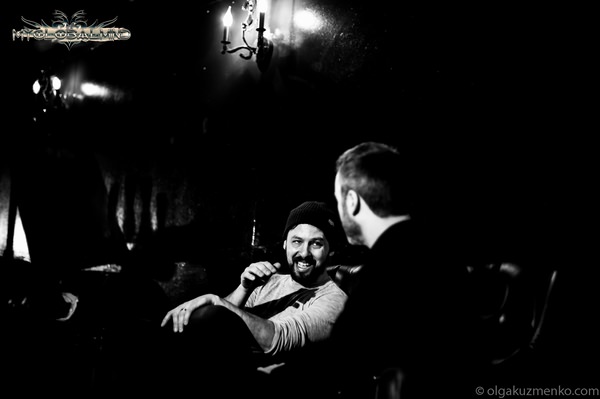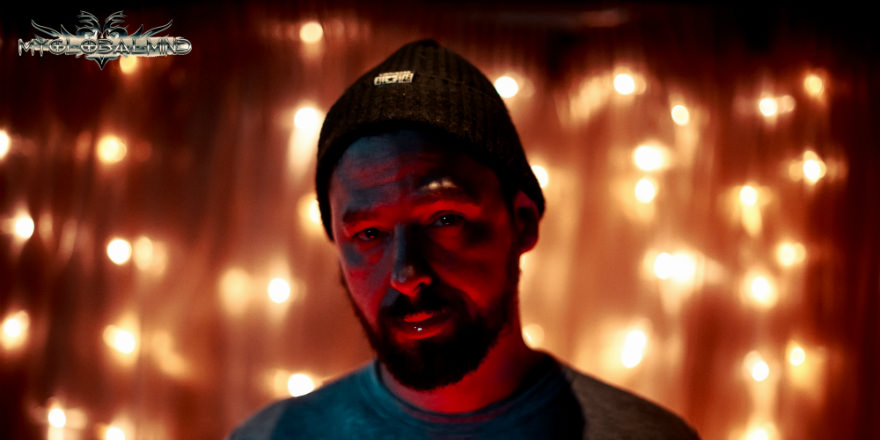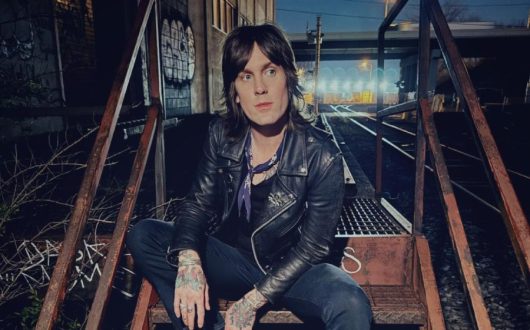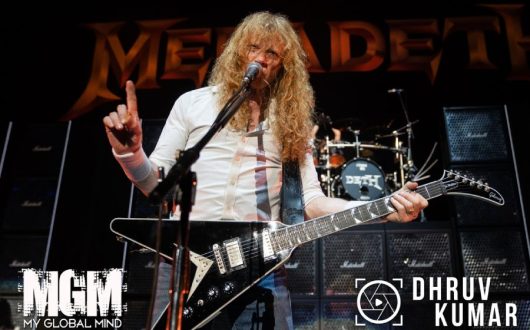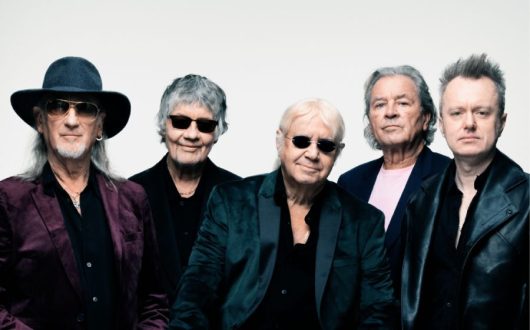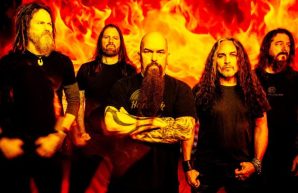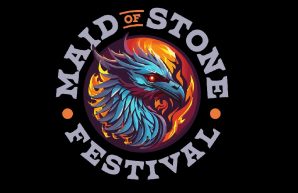Interview by Alan Daly
© Olga Kuzmenko
Photos by Olga Kuzmenko
Guitarist and founding member of The Dillinger Escape Plan, Ben Weinman, gave an exclusive interview to My Global Mind in Nottingham on their final headlining tour of the UK. He discussed their imminent dissolution, why their music has brought fans together, his opinion on president Donald Trump, and hints at returning to the UK for Summer festivals this Summer.
Alan: Thank you very much for taking the time today to talk to us. Obviously, the topic on everyone’s mind is your decision to call it a day. It’s a very brave move. Is it the end for new recordings? Or live performances? Or is it both?
Ben: Well, there is some stuff that we haven’t put out yet, which probably needs a few touches here and there. We’ll probably release that stuff eventually. We’re proud of it and we’re happy with it. It just didn’t seem to make its way on the album, and we ended up digging up some older material for the album instead of putting the new stuff on. So there probably will be some new music coming out, but as far as we know now, this is it. We usually spend like three or fours years between albums anyway, so even if you asked me this last album, I would have said I don’t know if I’m ever going to write another Dillinger song again. When you’re just finishing one, you don’t have it on your mind.
Alan: So at what point did you actually make the decision? Was it during the writing of Dissociation? Was it on your mind?
Ben: The music had already been at least half way finished when the thought came to my head that this may be a good idea. It’s a tough one, for me especially. I started the band. It’s all I’ve been doing for so long. It’s all people know me for. Almost everyone in my life I know has been somehow related to this band at this point. So it’s a scary thing, but I think while the music was continuously being written, it was in the back of my head. I was thinking about it and trying to come to terms with it. Could we do this? Does it make sense? Should we do it? And then by the time I discussed it with the rest of the guys, most of the music was finished, but the lyrics and the vocals hadn’t been done yet.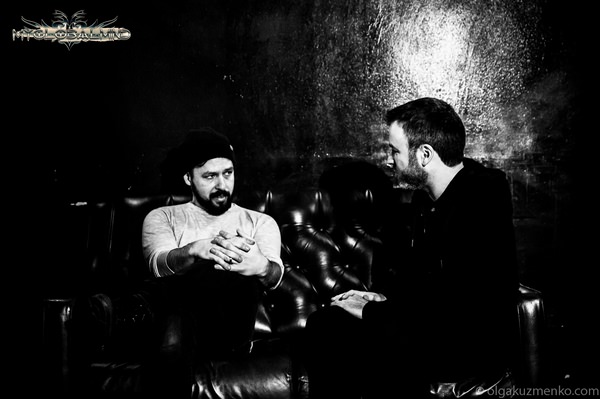 Alan: How did Greg and the rest of the band react when you said: “hey guys…”
Alan: How did Greg and the rest of the band react when you said: “hey guys…”
Ben: Well I think I talked to Billy about it first because we work very closely together. We play and we write together and work on the songs quite a bit before the other guys come into the picture. He said, “I just back whatever you want to do”. He’s always been very supportive of my decisions. And he knows that me and him will always continue to do stuff together and make music. Then I think I discussed it with Greg, and at first, he didn’t understand why we would do that. He thought “Everything is great. We’re working on an album that we love. Our shows are better than ever. We’re better than ever. We’re a tight unit right now.”
Alan: As I said it’s a brave decision to quit from a strong position rather than fade away.
Ben: Yeah. Well, I thought to myself, at some point it’s going to stop, and I don’t want it to be for reasons that are out of our control. For wrong or unfortunate reasons. Whether it’s through fighting or injury or whatever. The reality is, physically it would be difficult to continue this lifestyle forever.
Alan: Your live performances are so energetic and crazy. Do you have a way to release all that energy when you won’t have Dillinger as an outlet?
Ben: It’s a good question. I’ve no idea. I’ll probably just get fat and old. I’ll continue to make music. I’m going to work on an electronic album which is something I can do on my own time and terms. I’m doing a lot of behind the scenes stuff. The label Party Smasher is still just taking flight, so there’s going to be a lot of work on that front. And I’m always looking for new ideas and new projects, but I don’t have a replacement idea for Dillinger. It’s not like I’m looking to do something new on the level of Dillinger, you know?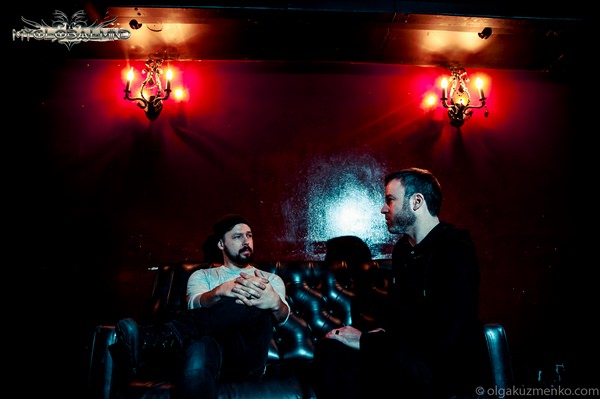 Alan: Sure. If you could relive any event or day in the life of Dillinger, what would it be?
Alan: Sure. If you could relive any event or day in the life of Dillinger, what would it be?
Ben: That’s another good question. It’s hard, because, would I be the person I am now, then, or would I be the person I was then? In some of those early years when we were doing it for no other reason than just as an amazing physical and emotional outlet to vent our day of work or school and had no intentions of doing this for a living. No expectations and nobody to please. It was tough. It was exhausting. And it takes a young man to that stuff. Some of those times were the most exciting because rights of passage would happen so frequently in that time period. Like “Wow, we got a show. Holy shit. The label guy was there. We got a little deal. We’re going to put out an album. It’s going to be in a store. Holy shit that’s crazy. Now we’re going on tour with one of our heroes.” All these cool amazing experiences… Those were the times that felt the most intense and were most memorable, but now in retrospect are all relative to the time.
Alan: And what would you say was the ultimate high point for you?
Ben: I think doing things like playing in Australia for the first time and having a crowd of people know who we are and care who we are. There are times when you do this stuff for the first time and you take it in for a second, and you stop and say “Man, when I was a kid, I never thought I would be this far away and playing my music and having people know it and care.” There’s all these little moments like that. But there are so many times. Like being at a festival and having Jimmy Page sitting next to me at catering. This is not because I snuck into the place. It’s because I’m supposed to be here. That’s pretty crazy. With Dillinger, not only has there not been one high point or low point, but there’s also not been one thing that has propelled our career. If you asked what’s the one thing that did it for us, I couldn’t give you an answer. It’s really just been continuously trying to release and play music honestly, and do it without paying too much attention to who’s listening or how many people are in front of you. We play the same show when there are thirty people in front of us as when there are three thousand people in front of us. We never treated any show differently, and I think that’s what slowly kept propelling us in the direction that we’ve been going. No band took us on a tour that made us huge or no record label industry guy ran by our practice space and said: “I’m going to make you famous kid”. There was no one thing that did it for us. It’s just been a real career of music.
Alan: You and the rest of Dillinger have become role models and an inspiration for so many bands, and there’s one band from Galway in Ireland called Ilenkus and they cite you as a major influence, and they had some questions for you.
Ben: Cool.
Alan: Josh asked, “Coming from someone who feels grateful to experience catharsis from live music, do you see extreme music, paired with intense and energetic performance, as beneficial for society in general?”
Ben: I think so. They did a study recently that said that people who listen to metal and people that listen to classical music have the same brain. They think the same way. They did a scientific analysis of brain waves and things like that and the same things are happening. And they always say that classical music is soothing and it’s good for you and it helps you study. All the shit they’ve always said that classical music does and that metal is the opposite. But they’re showing scientifically that’s not the case. It’s actually the same kind of thing as far as the stimulus and the creativity is concerned.
Alan: And you’ve studied psychology yourself, right?
Ben: Yeah. I also think that there are interesting studies that have been done where they take music into hospitals with people with severe amnesia. And when they’ve played the music over the radio or a stereo versus when they have people come in and play live music, the retention of memory was like a thousand times greater when they saw the live music. And it started bringing their memories back. And they certainly remember the experience more than just hearing it on a CD or something like that. And it actually helped these people get better.
Alan: The live experience is always so much better than just listening to pre-recorded music.
Ben: Yeah, it had a different effect on the chemistry of their brains. I think all these things are proof that music and live music and music that you have to work for and concentrate on, can be beneficial. And for me, it’s been meditation. It’s been everything. I’m a very anxious person, and Dillinger has been what’s kept me focused. When you’re playing Dillinger live, your mind can’t really wander. You can’t be like “did I leave the iron on?”. And very few people have that luxury of having activities that bring them into the moment right there. And that’s what I think I’ll miss the most.
Alan: Josh also mentioned that he’s a member of a Facebook group called the Dillinger Compound. Are you aware of that?
Ben: Oh yeah. Very aware.
Alan: He said it’s an incredible community of engaged and like-minded people, and he asked what you think it is about Dillinger in particular that inspires such a sense of friendly community?
Ben: It’s a tribe, you know? Dillinger is something you have to work for. People don’t like it when they first hear it. It’s that simple. It takes time and work for it to click and to become something that’s enjoyable. And anything you work for, you care more about. And in general, people sociologically trust other people who are like them. And when you know a band like Dillinger which is very obscure and very niche and very atypical of what the mainstream is into, you feel an affinity for others. You feel like “oh, that person gets me. They’re one of me.” We’re one of those things that tie people together who has found something that’s not easy to find and not easy to digest.
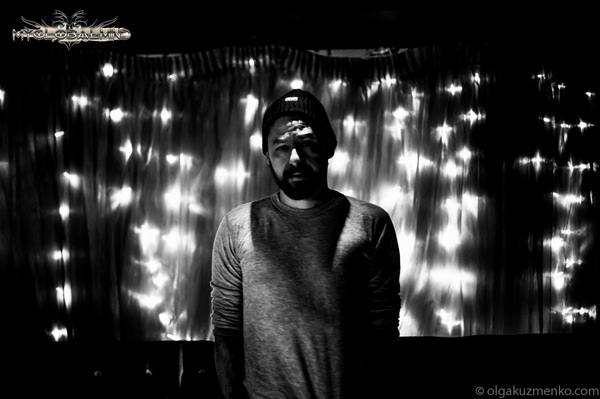
Alan: Regarding all the bands that cite you as an inspiration and influence. What message do you think your decision to call it a day sends to them?
Ben: Don’t ever do anything because you feel you have to do it. Don’t ever let yourself get comfortable. The one thing I tell young musicians and artists is to figure out why you’re doing what you do. If you don’t know why you do it, then you’re never going to be able to present it honestly to anyone. If you say “I do this because I like Dillinger”; that’s not a why. “I want chicks and money”; that’s not a why. Hopefully, it could be a result, but it’s not a why. Why do you need to exist? What do you do that’s important? What do you believe in? It could be as simple as “I don’t give a fuck about anybody else. This is for me”. And when you do that, you start to believe it and you start to care about what you’re doing, and it comes off honestly. And when you do that, it doesn’t matter what you do; people will trust you. And that’s important.
Alan: Yesterday, Black Sabbath played their last Irish show in Dublin on their final tour. They’ve been playing for like fifty years. I’m not saying Sabbath is one of them, but do you think there are any bands that should have done what you’re doing and said “enough is enough” at some point?
Ben: Some people would say Metallica. I’m not saying that. Our whole band is fans. But I think it’s pretty amazing that a band that absolutely does not need to do anything else in their entire fucking life except enjoy their money and hang out with their family still goes hard and puts out records and tours. I ask myself all the time, why do they do that? They don’t need to do that. So they’re obviously doing it for the right reasons. They obviously still enjoy it. So to me, no, I guess they shouldn’t call it quits. Who else, I don’t know…
Alan: Conversely, how about any bands that did call it quits, that you think should have kept going?
Ben: Maybe Rage Against The Machine, but I can’t say that because who knows what the future would have been. I think Faith No More could have continued to put out good music, although Patton would have disagreed, and that’s why I think he walked when he did. I would love to see more Mr. Bungle albums. There’s only three of them and they were all amazing. Mahavishnu Orchestra, a fusion band from the seventies and John McLaughlin, the guitar player went on to do stuff with Miles Davis, but that was the soulful stuff. I would have loved for that to just keep going.
Alan: I’m sure there are thousands of Dillinger fans feeling the same way. On an entirely different topic, Donald Trump was inaugurated yesterday. What could possibly go wrong?
Ben: Honestly, I’m so sick of fucking hearing about it. Every Facebook feed. Everyone complaining about it. I know, dude. He’s an idiot. He is. Through all the presidents I’ve been through, Bushes and Clintons and Obamas, I’ve still been doing the same damn fucking thing. There’s a point where you’ve got to say you can observe it and you can do your part of caring about local government, that you can actually affect, which could eventually trickle down into bigger policies. But the whole thing is a reality show and I don’t want to contribute to it. We live in a culture where Kim Kardashian is more famous than any scientist. Stephen Hawking is nothing compared to Kim Kardashian. That’s what people want, and that’s what they’re getting. At the end of the day, the good part of it is there’s always amazing art that comes from this kind of stuff. Young people react to this stuff. I’m hoping to see more of that than just everyone complaining.
Alan: Yeah. I saw Audioslave regrouped for an anti-inaugural ball.
Ben: That’s one that should hang it up! Audioslave? Really? Are you going to fucking reunite? Hang it up, Audioslave! Soundgarden… Awesome! Rage Against the Machine… Awesome! Supergroups suck! Trust me, I know from experience. I’ve done a few myself.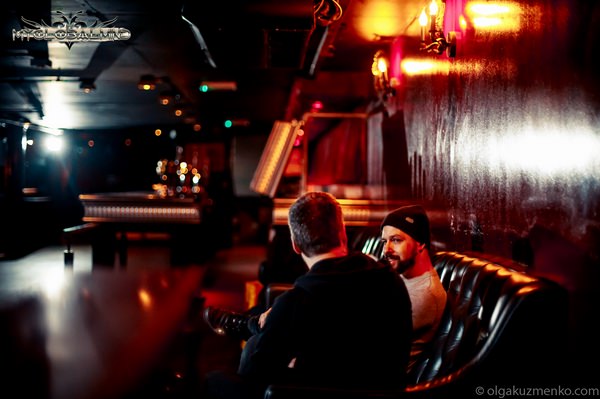 Alan: Haha… Yeah Giraffe Tongue Orchestra is a supergroup, right?
Alan: Haha… Yeah Giraffe Tongue Orchestra is a supergroup, right?
Ben: I hate that it is, but whatever.
Alan: So the last Dillinger shows that I see scheduled are in mid-July in Bridgeview. Do you have anything special planned for wrapping up?
Ben: We still want to do South America and Australia. We may do a little bit of Asia…
Alan: And Ireland?
Ben: You know, why are we not doing Ireland? Maybe we should throw a show in July when we’re here for the festivals. Just like stop by and do a little cool show. I’d like to do that. We don’t have a “last show” planned. But I’d like to try to wrap it up by the end of 2017 because I got a tattoo and it says 1997-2017. It’s a gravestone tube. And I don’t know how to turn that 7 into an 8. And it would ruin it because I like the sevens and twenty years is nice. Maybe a show on New Year’s Eve!
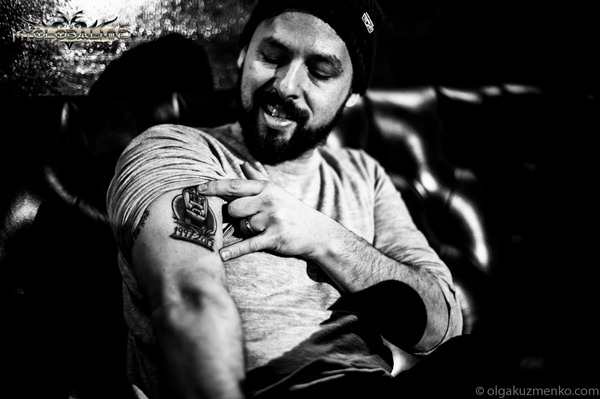
Alan: Tell us about your Reading Festival appearance in 2016. We all know about the infamous Reading gig back in 2002, but this year Greg sat in an armchair drinking tea for the entire show.
Ben: We never want to be a gimmick. And people start constantly asking “What are you going to do today? Are you going to shit? Or are you going to jump off something?”. I think it was Greg’s reaction to watching other bands that day jumping around and climbing on shit. And he was like “I’m not doing that today. I’m just going to sit down”. We don’t want to be predictable. That sucks. I think we’re a band that feels like we can be good without that. Stage presence isn’t about jumping around like a monkey. It’s about intent. Art is about intent. We always want to be art, not craft. Playing our music perfectly or getting all the notes right, or being great at our instruments, all that stuff is secondary. We want to actually have felt and meant something. And that day, he didn’t feel like jumping around. It wouldn’t have been honest.
Alan: I want to bring up bands you have inspired again. Are there any such bands that you are aware of that you really like?
Ben: Let’s see… This band that I’m working with on Party Smasher called Flavor Waster. They have a female singer, really interesting keyboard, and very limited distorted guitars. I know the guitar player and songwriter and he told me that Dillinger is the main influence, and he’s taken the essence of what we do, and the attitude and the ideology and put it into a different kind of music. And that to me is the way to do it. That’s how we started. We took a bunch of bands that we thought were doing something interesting and we took that energy and ethic and we put it into something new.
Alan: It’s like covering a song but entirely in your own style. Like today I was listening to the Dillinger version of My Michelle, and it’s just so different to the original Guns n’ Roses version. It’s great.
Ben: It’s so good, yeah.
Alan: Well, we’ll wrap it up there. We really hope you’ll make it to Dublin for one last show. Thanks for taking the time today.
Ben: We’ll see what we can do.
http://dillingerescapeplan.org/
